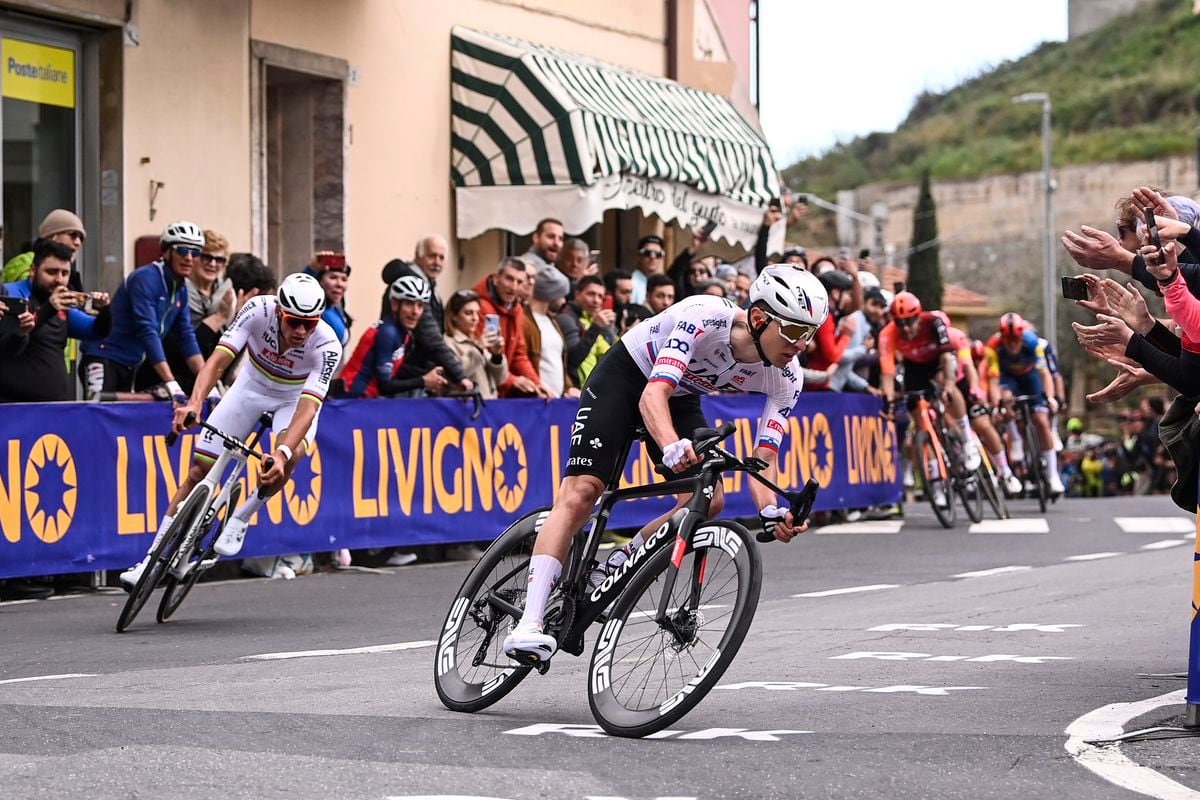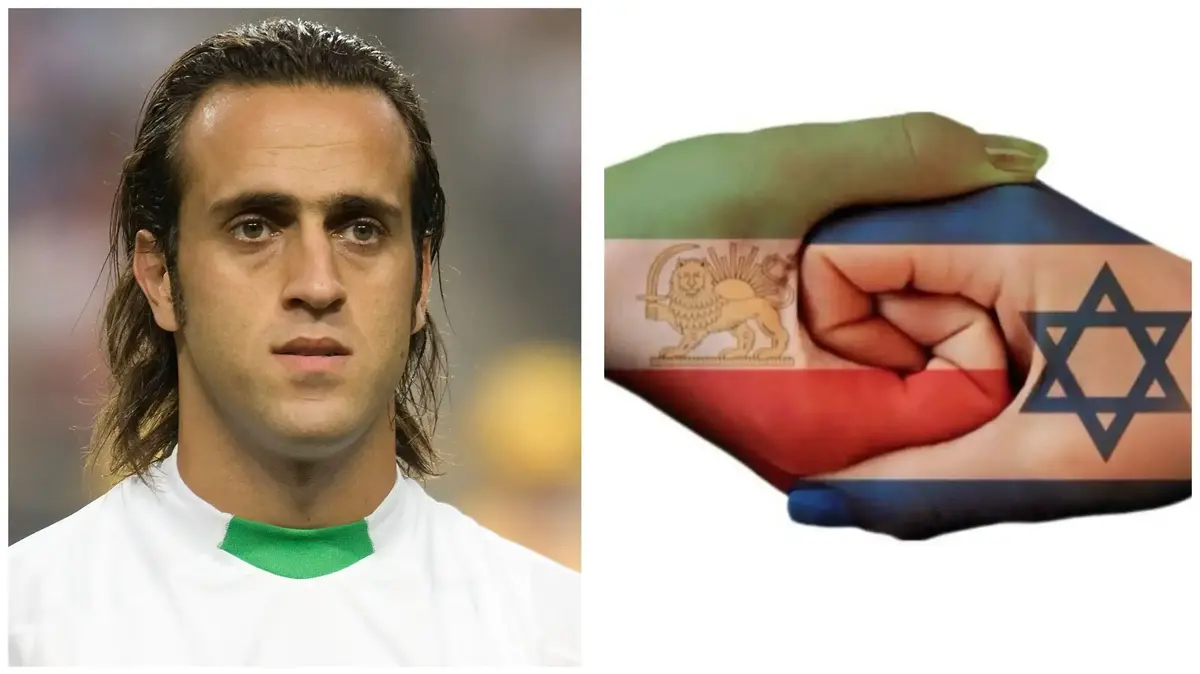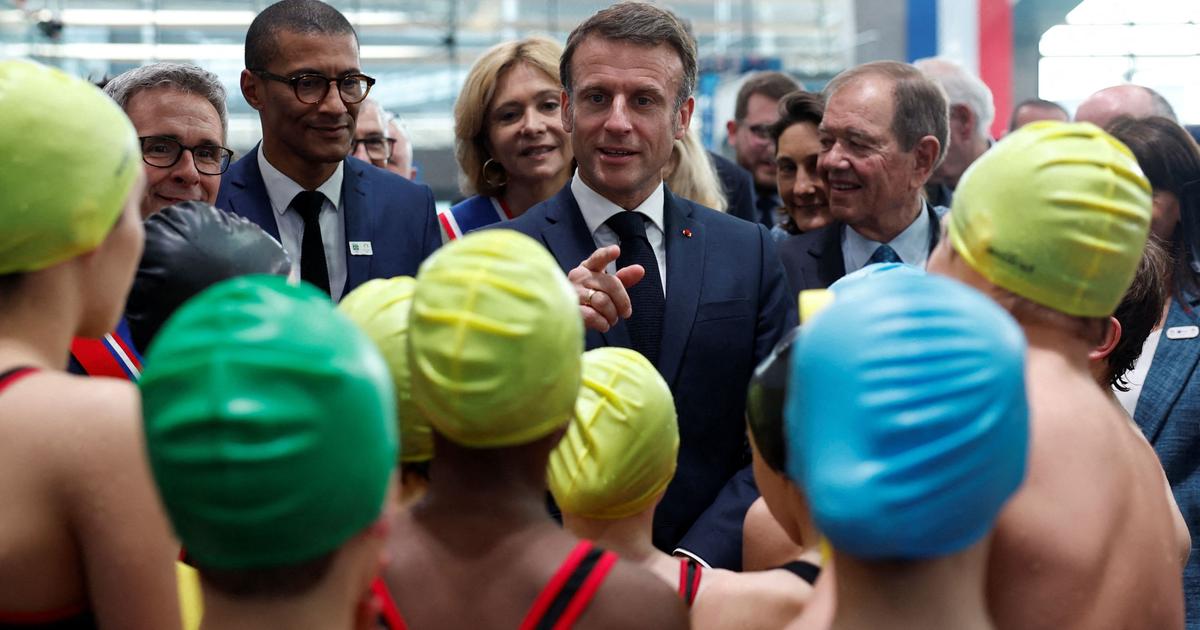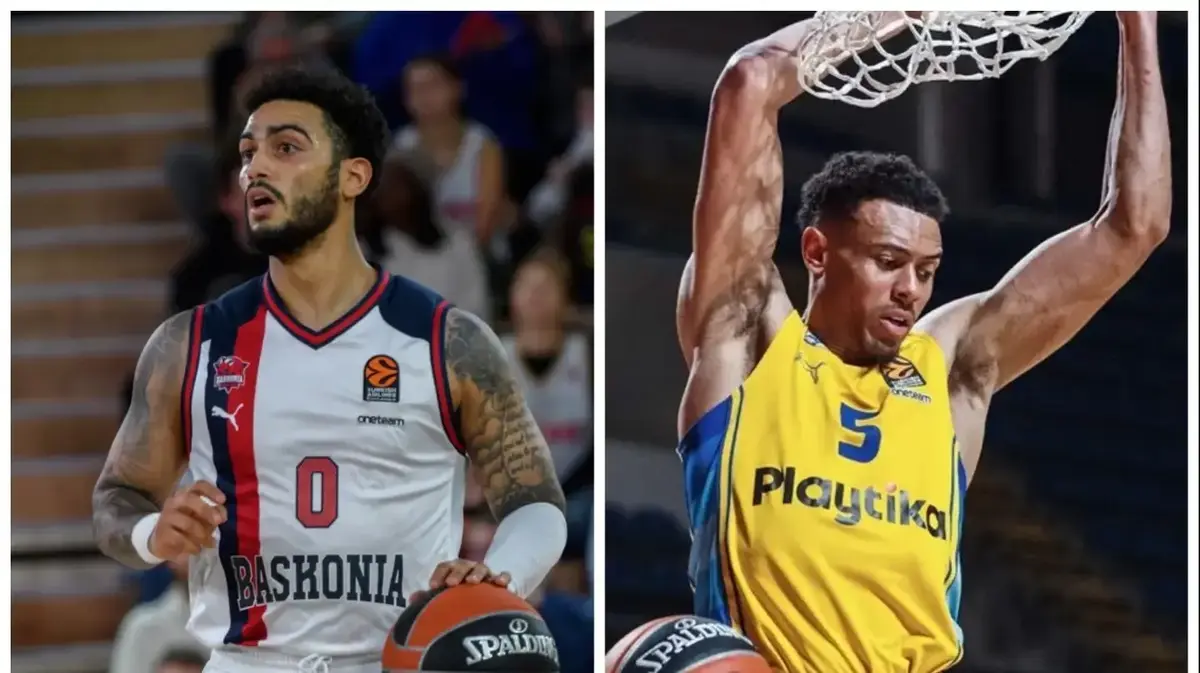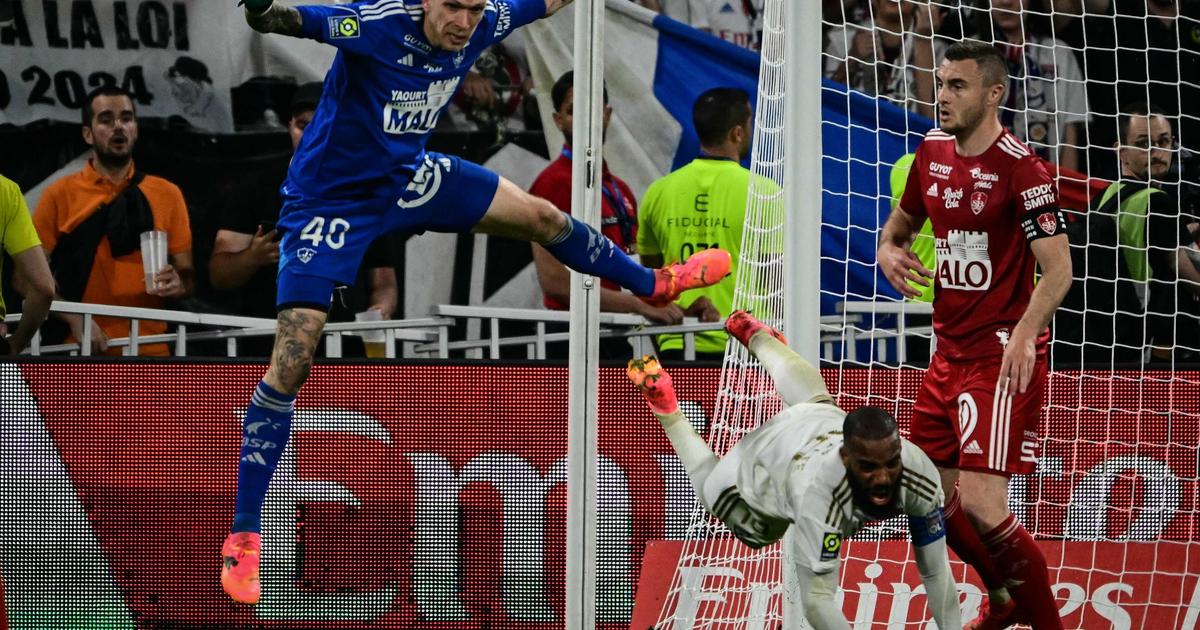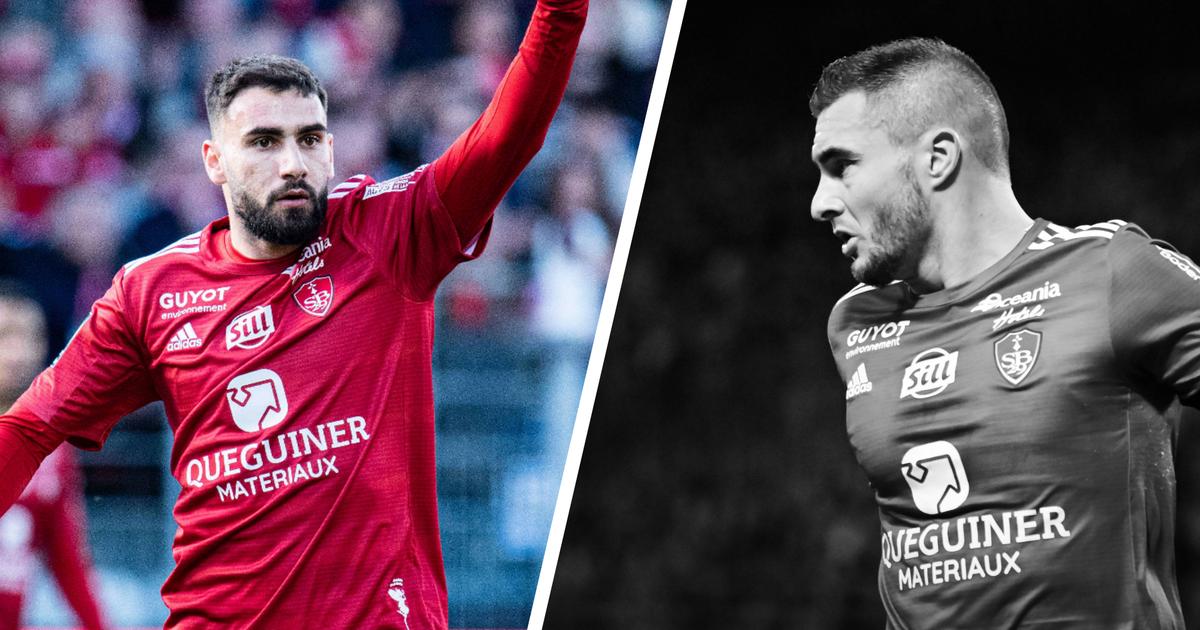Icon: enlarge
Wout van Aert and Primoz Roglic: "I will definitely come back to the tour"
Photo: MARCO BERTORELLO / AFP
The day after the biggest defeat of his career, Primoz Roglic could laugh again.
On the way to Paris he hugged Tadej Pogacar, the 21-year-old winner of the Tour de France.
Later, Roglic stood on the podium in the French capital with his young son and didn't look so unhappy at all.
24 hours earlier he had been sitting empty and stunned on the asphalt of the Planche des Belles Filles after Pogacar had taken off his yellow jersey in the time trial.
"At the moment I can't think clearly, I don't have a clear plan for the future. It's like my head is empty," Roglic said that evening.
A haphazard Roglic, you don't really know that.
When today's Jumbo-Visma team signed him at the end of 2015, he had great ambitions.
Before his first race, Roglic said his goal was to win the Tour de France within five years.
His own bosses had to slow down Roglic, after all, the new professional had not yet won a race in the big World Tour.
A team for the tour victory
But Jumbo-Visma believed in Roglic's talent and in the following years built a team that would compete for the tour victory.
In 2019 Roglic won the Vuelta, his colleague Steven Kruijswijk came third in the Tour de France.
The team also brought in the all-rounder Wout van Aert and, in Tony Martin, a helper who can lead a peloton with his authority and time trial quality.
In 2020, with the former Giro winner Tom Dumoulin, another captain joined the Dutch team.
The team seemed so strong that their rival Richie Porte called them the "killer wasps" because of their jersey colors.
Icon: enlarge
Jumbo-Visma controls the pace before Pogacar: "He just had to fly under the radar before the time trial"
Photo:
Peter De Voecht / imago images / Panoramic International
It seemed only logical that in the Tour de France everything would come down to the duel between Team Ineos and last year's winner Egan Bernal against Team Jumbo-Visma.
Instead, however, a professional triumphed in the young Pogacar, who actually received little support from his UAE team.
Not because his colleagues didn't want to help him, but because they simply couldn't do it in the mountains.
The actual UAE captain Fabio Aru had to give up the race in the Pyrenees, not even he could pull Pogacar through the Jura or the Alps.
The more the question arises, how Jumbo-Visma could still give the tour victory out of hand, although Roglic had about a minute ahead of Pogacar.
Cycling legend Eddy Merckx accused Jumbo-Visma in "L'Équipe" of having "stupidly" ridden the tour.
He had always warned that Pogacar could still catch up with Roglic, according to Merckx: "He knew he didn't have to attack because Jumbo is stronger. He just had to fly under the radar before the time trial."
Merckx is not wrong on this point: Pogacar only had to follow Jumbo-Visma in the mountains.
The youngster thus led the assumption ad absurdum that a tour winner always needs a strong team at his side.
Just like the four-time winner Chris Froome experienced with the dominant Team Sky.
What do you need a team for?
What are helpers in cycling good for?
An important factor is speed work.
Ideally, the helpers can hit such a high speed that their captain can keep up with this speed in the slipstream and the competitors have to gradually tear down.
If an opponent attacks, several drivers can split the effort into the follow-up work and thus bring the outlier back.
However, this tactic only partially worked against Pogacar.
Most of the time the Slovenian couldn't be shaken off and just stayed on Roglic's rear wheel.
But Pogacar also got to feel what it means to have no helpers at his side.
The seventh stage was indicative of this, and although it led over a flat stretch, on which there were so-called wind edges.
While Ineos and Jumbo-Visma were in the lead and protecting their captains from the wind, Pogacar fell back and lost more than a minute to the top drivers.
It would have been similar in the mountains if Pogacar had not been able to follow, or if his bike had a technical defect.
Then nobody would have been able to lead him back to the top.
Is Pogacar getting help now?
In the end, Pogacar won the Tour de France not because he was alone, but even though he was alone.
The 21-year-old made up for his major disadvantage with his excellent solo performance.
It will not be the teaching of cycling to only send lone fighters on tours in the future.
Rather, and this is always easy to say in retrospect, the collective should perhaps have played out its advantage more consistently.
"I don't know whether we made mistakes as a team. Whether we should have driven more aggressively," said Roglic after the tour: "We have to analyze that."
In any case, the United Arab Emirates team will learn from the tour that they can bet everything on Pogacar.
He still has a contract until 2024, so UAE could win some more tours with him.
In addition, there is enough time to form a team around Pogacar that could help him to further victories - with seven domestics at his side he would probably be even stronger.
Then there could be a battle between three big teams at the Tour next year: Ineos, UAE and Jumbo-Visma, whose top riders will all still be there next year.
Primoz Roglic said, "I will definitely be coming back for the tour."
Then he has a plan again.
Icon: The mirror




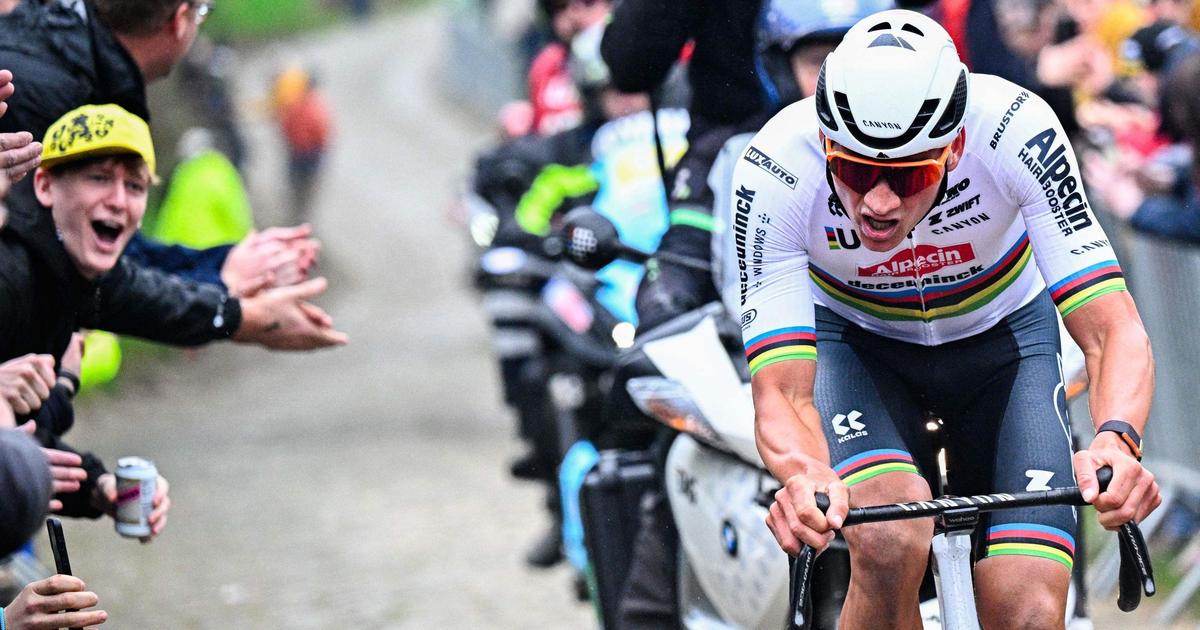
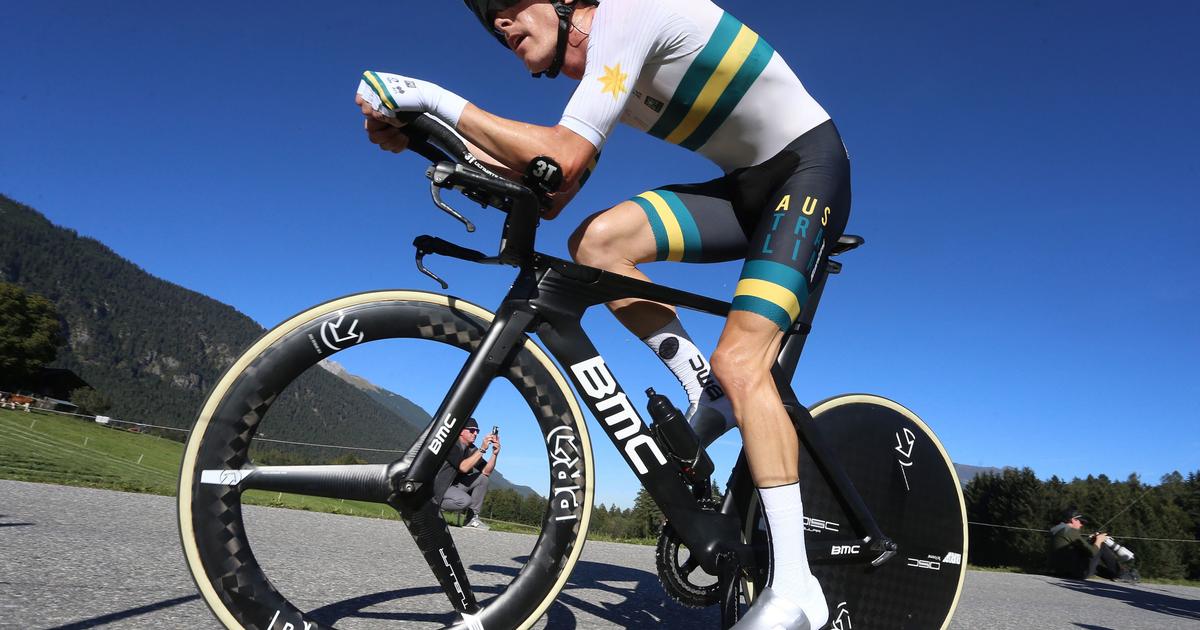

/cloudfront-eu-central-1.images.arcpublishing.com/prisa/PC64GDDWYZBDBPMICIQJ6CD5T4.jpg)
